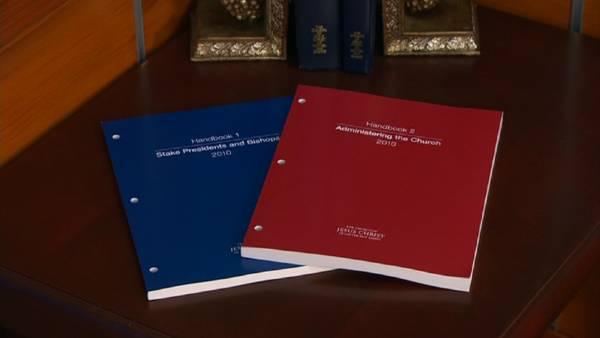Question
Hi Gramps,
Could you please better explain the reason the Church Handbook for Bishops was changed to exclude the blessing and baptism of children of same-sex parents? The recent news about this has managed to cause a big rift in my non-Mormon family members.
Melanie
Answer
Melanie,
The true and correct answer is because the Lord’s appointed servants, whom He has called to lead the Church, told us this is what we need to do. The First President recently clarified the changes made. First Presidency Clarifies Church Handbook Changes We also have an interview given by Elder Christofferson. Church Provides Context on Handbook Changes Affecting Same-Sex Marriages
Unfortunately that answer only works for those who have a strong and powerful faith that the church is led by God through His Prophet and Apostles. For non members and for members of less firm faith, that simply does not work for them. They need reasons, rationalizations and logical answers. Even if we had all the other ‘reasons,’ (some of which the church has given) it still would not be good enough for many who have already made up their minds on what they think the correct answer should be and not accepting anything less.
But you asked me for reasons for non members. I will do my best knowing the limits of what we know and what others are likely to accept. And knowing that I can’t do as well as the leaders have already done.
First lets talk repentance and marriage. Both are important, both have lots of doctrinal support. In just about every case repentance can work together with marriage strengthening it and making it better. There are only two cases (that I am aware) that repentance requires the destruction of a marriage. Destruction of a marriage is a huge deal with all kinds of fallout and long term consequences. (See The Family: A Proclamation to the World for details if needed) Those two cases are polygamous marriages (currently forbidden) and homosexual marriages.
This is not a new or recent change of doctrine. The stance against children of polygamists becoming members while still children has been in place for a long time. Expanding that to cover the children of homosexual marriages only became necessary after homosexual marriages became possible.
In both cases the Church has to consider what is best for all the people involved and find a balance between those that are innocent, those that are trying to live up to the covenants they made, and those who are not interested changing their ways.
It seems to me that the Church is acting in a way to protect the innocent by not putting them under the covenant of baptism, until they are mature enough to understand the sinful nature of the homosexual parent’s relationship and balance that with the very natural and and understandable love and affection children have (hopefully) toward them. That is a hard balance for adults to find. For a child that could be very much impossible, so the Church protects them by pulling itself out and not allowing the child to become a member.
Of course not being a member does not mean the child can not be fellowshipped if allowed by the responsible adults over them. If this happens the lack of baptism and actual membership might hurt the child’s feelings when they notice and that is regrettable. But dealing with feeling left out, as painful as it might be, is a normal childhood experience. Feeling like you have to choose between a parent and the church is most decidedly not.
So Melanie when you hear people attack the church on this issue with the cry of “Think of the children” you can rest assured that the Church, its leaders, and the Lord have very given much thought of what was best for them. And then they acted accordingly.
In addition to the “think of the children” attack, there is also the “Christ wouldn’t do this” In the context of denying baptism of children until a later time those that think this do err and do not understand the scriptures. Two examples come to mind:
First is the story of a leader of the Roman army found in Luke 7:2-10. He was a gentile, and he came to the Lord asking Him to heal his sick servant. The leader clearly had faith and a willingness to do as he was told. Yet Christ did not instruct him to be baptized.
The second is in Matt 15:22-28. This is a story of a woman who comes for help with her sick daughter. She had enough faith to push, though, even after Christ pointed out he wasn’t sent to her; she got a blessing anyway. Yet the Lord did not have her be baptized either.
In both cases Christ witnessed great faith and desire on the part of the individual, but denied them the chance to be baptized. This chance had to wait until Peter was instructed to take the Gospel to the Gentiles. So our Lord as Savior Jesus Christ is on record in the Holy Scriptures as withholding baptism from people if the time was not right for it to happen.
Gramps






